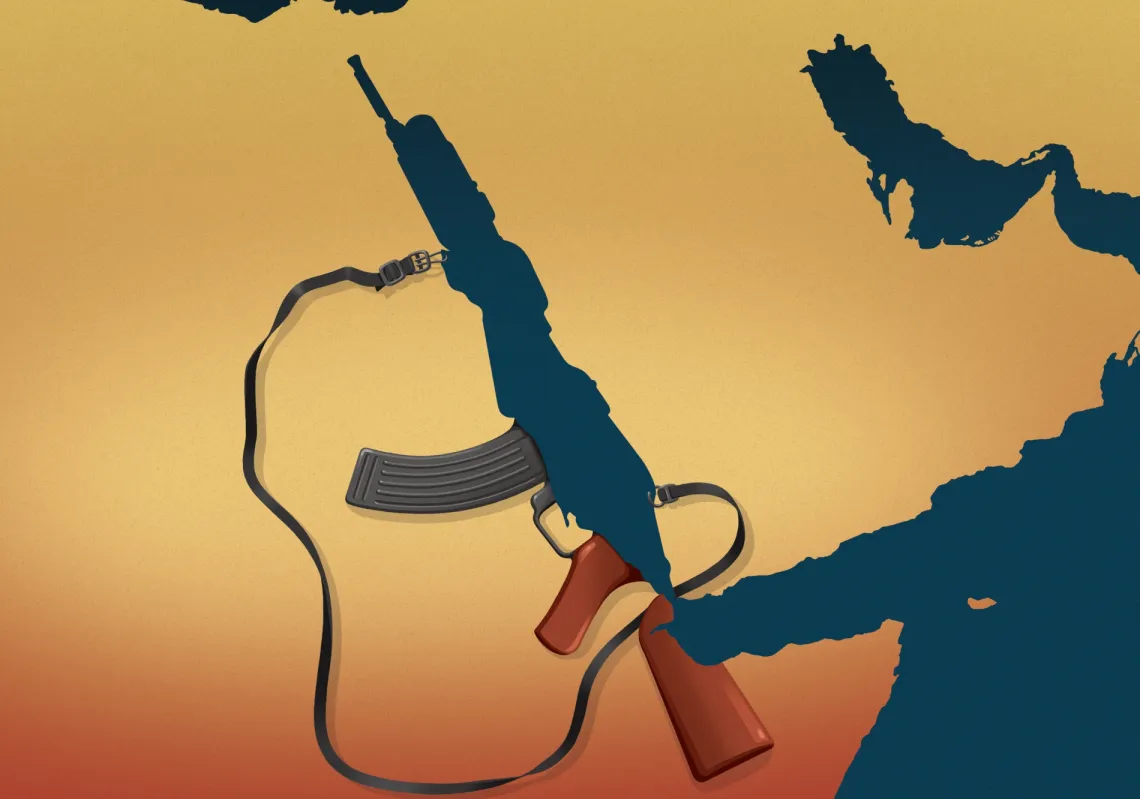Many opposition voices within Lebanon have been calling for action, which would counter government corruption and bring back money that has been embezzled out of the country. Interestingly, many of these voices excluded Hezbollah from their lists of corrupt ruling institutions. Some even went further by stating that Hezbollah should be a part of investigative tribunals on corruption and some even said that Hezbollah should lead such investigations.
Most of these opposition figures that are softer on Hezbollah argue that the only controversial aspect of the group is its weapons supply and its close ties with Iran and its policies. As such, they argue that the group has no incidents of corruption in Lebanon. However, in reality the group is one of the most corrupt entities in the state, and its corrupt activities have cost the country’s reserves billions of dollars. Here’s an overview of the group’s corrupt activities:
Illegal border crossings: Recently, an Israeli agent called Amer El Fakhoury managed to escape Lebanon by boarding an American military helicopter at the Cypriot embassy in Lebanon. Hezbollah’s leader, Hassan Nasrallah, would go on to address this breach of borders by stating that the group has now taken full control of the countries borders and is aware of individuals entering Lebanon and individuals leaving Lebanon. These illegal border crossings are one of the activities that have been costing Lebanon, as money launderers and customs dodgers have managed to embezzle 600 million dollars through Lebanon’s insecure borders. At the Lebanese-Syrian border there are tens of illegal border crossings, as a matter of fact the former Finance Minister (who was a member of the Amal Movement, an ally of Hezbollah) once stated at a ministerial meeting that there are 136 illegal crossing check points at the border. What he didn’t mention is that Hezbollah is fully in control of these border crossings, which it uses to move weapons to and from Syria. The group also uses the crossings to import other goods from Syria in order to evade any customs charges. While the Syrian regime benefits from such illegal trade practices, the Lebanese state is deprived from customs duties that it is legally meant to receive. Furthermore, Lebanese markets get flooded with Syrian farm goods, which only hurts local farmers who are forced to compete with cheaper Syrian food. Hezbollah also uses the illegal crossings for drug smuggling. In my previous opinion article (Hezbollah’s Drug Dealing and Money Laundering) I wrote that drug dealing is one of the group’s main sources of income. The crossings are also used to transfer Iranian weapons into Lebanon via Syria, and there have been many Israeli raids in recent years targeting shipments that were transporting weapons to Hezbollah in Lebanon.
In addition to the issue illegal crossings, there is also the issue of customs evasion, which take place through the Beirut port and the Rafic Hariri International Airport. It is no secret to anyone that these two main facilities are under the control of Hezbollah, as they are used to transport weapons from Iran and drug smuggling. The facilities are also used to bring in cheap goods to merchants affiliated with the group. These goods come into the country without passing through any of the standard quality checks and without any customs charges placed on them. It should be noted that in 2008 the government of Fouad Siniora took the decisions to dismiss the head of the airport security apparatus, Brigadier General Wafik Choucair, and dismantle Hezbollah’s telecominucations network. In response to those decisions the group decided to stage a military invasion on Beirut.
Hezbollah is also implicated on charges of distributing faulty medication in Lebanon. A few years ago, the Ministry of Health and the Health Committee in the Lebanese Parliament revealed an underground operation which manufactred counterfiet versions of 150 items of medication. These authorities also revealed that unusable medicines were being imported from Southeast Asia into Lebanon. This was done by forging the Minister of Health’s signature and then subsequently distributing the medicines to clinics and hospitals. One of the vital ring leaders of the operation was Abd El Latif Fneish, whose brother, Mohamed Fnesih was a minister and Hezbollah’s representative in the Lebanese government.
This scandal has recently come under scrutiny again as some media outlets have leaked the current Health Minister’s, Hassan Hamd, rejections over the use of “rapid tests” to test for Coronavirus, and has instead opted for the the PCR testing method. It should be noted that Abd El Latif Fneish is the one who is in charge of the deals that should bring in PCR testing kits into the country.
Moreover, there is a captagon manufacturing scandal. In 2012, the Lebanese customs seized a substance coming from China which is used to manufacture captagon pills. Investigations later revealed that those responsible for this captagon pills operations were Hussein al-Musawi, Hashem al-Musawi and Jihad al-Musawi the brothers of the Vice-Chairman of Hezbollah. The operation was located in southern Lebanon and the pills were to be supplied later to the markets of Iraq, Saudi Arabia, Africa, Europe and Latin America. The Vice Chairman’s other brother was runninga car theft and counterfeiting gang, which stole cars and forged their paperwork, then finally sold them legally in the vehicle market.
Last but not least, there’s Hezbollah’s money laundering and emebezzlement activities which have greatly hurt the country’s banking sector. This is something that needs further investigation.
Taking into consideration Lebanon’s poor economic performance, the collapse of its financial institutions and the dwindling value of the Lebanese Lira, it is rather strange that some people still do not consider Lebanon a corrupt entity, and insist that the group is actually trying to deter and counter corruption. Lebanon will never get out of its current crisis as long as it is controlled by a corrupt group that is loyal to a foreign power that will not hold it accountable for its actions.
Sign up for our Weekly Newsletter
Get the best of Majalla, straight to your inbox.








